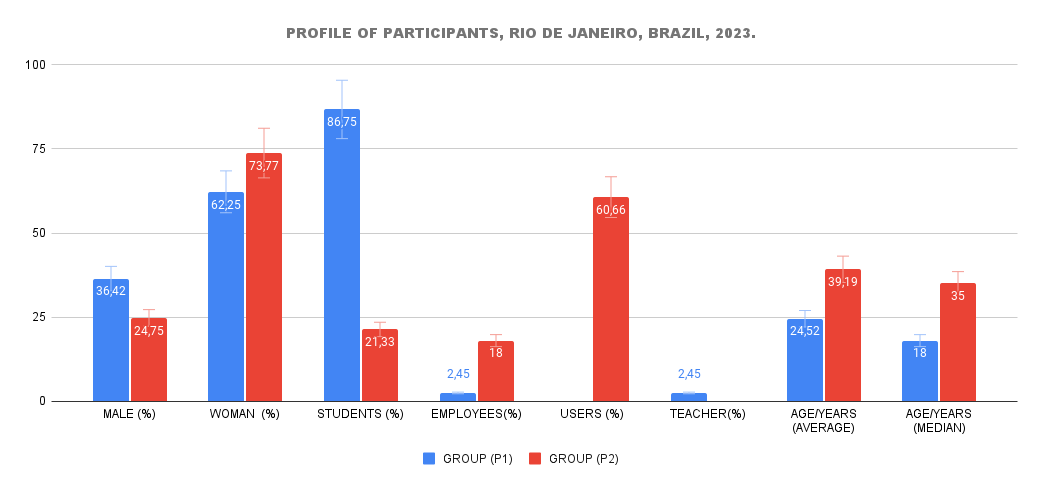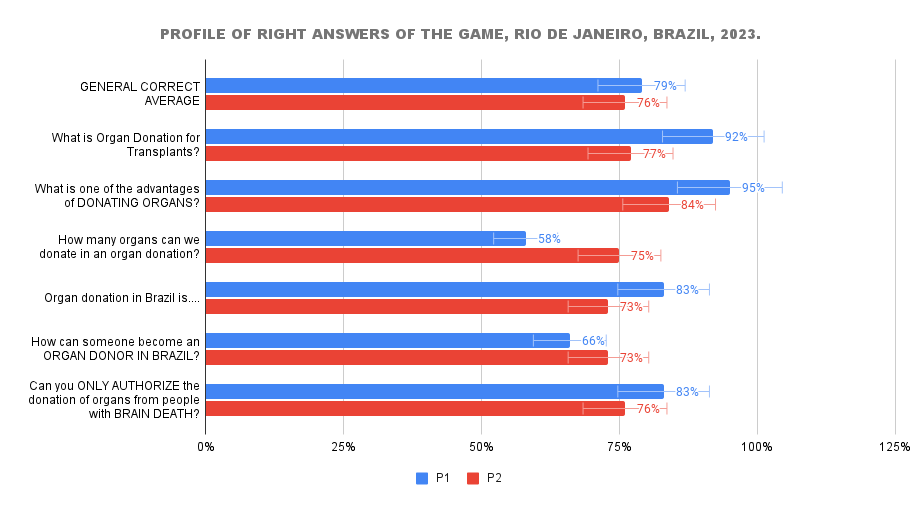Actions for organ donation: Strategies of a health-promoting university
Luiz Gustavo Dias da Cruz1,3, Danielle Moreira Marques1,3, Alessandra Sant’anna Nunes2, Natanael Silva Castor3, Natalia da Silva Carlos3, Juliana Santos de Santana 3, Amanda Rangel de Freitas3.
1 Intra-hospital Commission for Organ Donation for Transplants (CIHDOTT), Pedro Ernesto University Hospital, Rio de Janeiro, Brazil; 2Nursing school, State University of Rio de Janeiro, Rio de Janeiro, Brazil; 3Pedro Ernesto University Hospital, State University of Rio de Janeiro, Rio de Janeiro, Brazil
Evidence-based Nursing Research Center - HUPE/UERJ.
Introduction: The promotion of organ donation is a crucial issue for public health worldwide, and universities can play a key role in this process. Brazil has the largest transplant system and although robust, there is a pent-up demand of 50,000 people on the waiting list for a transplant. The Brazilian donation model is the consented model where family members up to the second degree can authorize the donation, therefore, social participation is vital for the sustainability of the system. Health-promoting universities are institutions of higher education that take a holistic and proactive approach to promoting the health and well-being of their students, staff, and communities at large. The State University of Rio de Janeiro (UERJ) is one of the health-promoting universities and has a high-complexity university hospital with an Intra-hospital Commission for Organ Donation for Transplants (CIHDOTT).
Method: This is a descriptive study that presents the results of actions to promote organ donation based on an interactive game developed by CIHDOTT.
Results: 2 actions on organ donation were carried out between August and September 2023 at the UERJ university complex, with a total of 212 direct participants. The first action (P1) had 151 participants and the public was 86.75% university students, in the second action (P2) there were 61 participants, 60.66% of whom were users of the hospital complex. The age profile for P1 was 22 years and P2 35 years was the median age, and for gender, women were the majority of participants, P1 62.25% and P2 73.70%. The interactive game was developed on the Kahoot® platform and included 5 questions about the Brazilian organ donation process, the average overall correct answer rate was 79% (P1) and 76% (P2); the lowest common index found was 66% (P1) and 73% (P2) for the question that addresses the consent model for organ donation. For the P1 group, 58% of the participants were unaware of the total number of possible organs donated. Both groups "liked it a lot" 100% in the evaluation of the stock.
Conclusion: Although a significant portion of the P1 group is in the age group after the introduction of the consensual donation model, the legal change was from 1997 onwards, 37% still believe that the written consent in a document is valid to make the donation, this variation was not observed in P2. There are doubts in the population about the impact of organ donation, up to 8 organs per donation, so initiatives that promote this knowledge are valid. The scope of health-promoting universities contributes to the increase of the culture of organ donation in various social sectors. Reinforcing the concept of family authorization through the manifestation of the desire to donate in life is one of the study's notes. This case report can contribute to multiple ways of promoting the culture of donation.

[1] Tissue and Organ Procurement
[2] Health Promotion
[3] Transplants
[4] Health Education
[5] Education, Nursing
